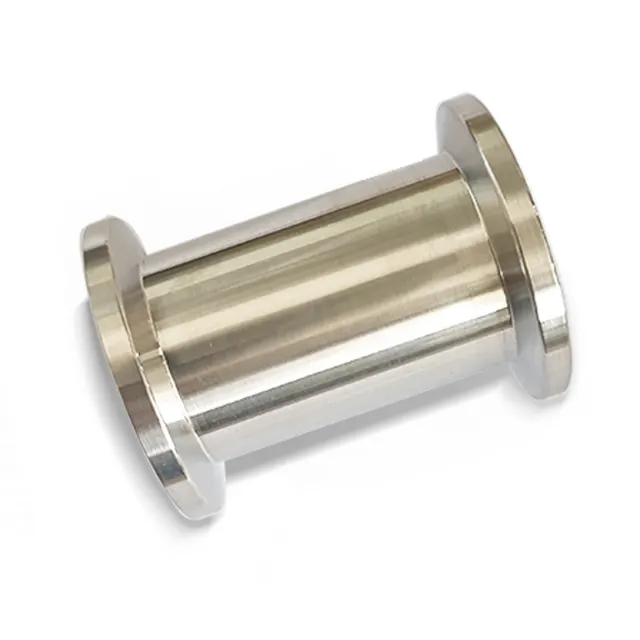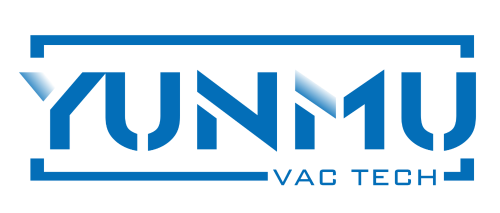Understanding Custom Vacuum Systems for Labs
What Defines a Custom Vacuum System?
Custom vacuum systems get built when regular off-the-shelf units just won't cut it for particular lab situations. Labs often need something completely different from what manufacturers typically offer. These systems come in all sorts of sizes and shapes, with functions specifically adapted to match whatever strange demands the research might throw at them. Specialized parts like pumps made for extreme conditions, precision gauges, and smart controllers all get incorporated into these setups. What makes this so valuable is how well they actually fit with whatever else already exists in the lab environment. Researchers find their workflow gets much better because everything connects properly without those frustrating compatibility issues. For facilities where standard equipment simply doesn't work, investing in a custom solution becomes absolutely necessary despite the higher upfront cost.
Custom vs. Standard Systems: Key Differences
Custom vacuum systems offer something standard models just cant match when it comes to flexibility and adapting to different needs. Researchers need this because they often have to tweak things like how strong the vacuum is or adjust chamber sizes for their specific experiments. Sure, off-the-shelf units might save money at first glance, but these cheaper options tend to fall short when real work starts happening. Labs end up dealing with all sorts of problems down the road when requirements change or experiments get more complex. Looking at the big picture though, spending extra on a custom system pays off handsomely over time. These setups run better day after day and keep operations running smoothly even during those crucial moments when every second counts in the lab. For most research facilities, going custom isn't just about having nicer equipment it's actually smarter business sense in the long run.
Benefits of Custom Vacuum Systems for Laboratory Use
Precision in Controlled Vacuum Environments
When it comes to controlling vacuum levels with pinpoint accuracy, custom vacuum systems stand out from the crowd. This matters a lot when running delicate experiments in areas like microbiology labs or material science research. With these systems, scientists can keep their lab environments exactly where they need them, which makes test results both accurate and repeatable across multiple trials. Researchers who want their work published know how important this kind of precision really is. Studies back this up too showing that better vacuum control leads to more reliable outcomes. That's why many labs see the value in investing in these specialized systems despite the upfront costs.
Adaptability for Complex Research Needs
When labs start working on methods no one has tried before or need to handle materials that won't play nice with regular equipment, custom vacuum systems become absolutely necessary. The ability to switch gears rapidly as science moves forward gives researchers an advantage in today's competitive research landscape. Take for example what happened at several biochemistry labs last year - those who installed custom setups saw their breakthrough experiments succeed where others failed. These real world examples show just how crucial flexible solutions are in modern lab environments. Custom systems simply do a better job handling the complicated demands of cutting edge research without all the headaches of trying to force square pegs into round holes.
Cost Analysis: Initial Investment vs. Long-Term Value
Upfront Costs of Customization
Getting custom vacuum systems usually means paying more money at the start than buying off-the-shelf models, so laboratories need to really think through their budgets before making this investment. These specialized systems get built for particular lab requirements, but without good planning ahead of time, labs often end up spending way too much cash. The key thing here is figuring out exactly what the lab actually needs because guessing wrong leads to wasted money on features nobody will ever use. When looking at finances, don't forget to factor in not just what needs to be paid now but also what might come up later that regular equipment just won't handle. Smart budgeting when going custom helps protect against money problems down the road, keeping those initial costs in line with what the lab wants to achieve over time rather than creating headaches later on.
Operational Efficiency and ROI Over Time
Putting money into custom vacuum systems usually pays off in better day-to-day operations and saves cash down the road. Labs with these made-to-order setups notice things like less equipment sitting idle and workers getting more done throughout the week, which makes for a pretty good return on investment. When looking at actual lab work, researchers find their experiments run smoother and produce better results compared to generic systems bought off store shelves. Some university labs reported cutting their maintenance costs by almost 30% after switching to custom units. While the upfront cost might seem steep at first glance, most facilities find that the extra spending gets made up within a couple years through all those saved hours and fewer breakdowns during critical experiments.
Case Studies: Lab Applications of Custom Systems
Semiconductor Research Success Stories
Semiconductor research keeps changing fast, and custom vacuum systems are becoming essential tools for anyone working in this area because they just work better when things need to be super precise. Researchers rely on these made-to-order systems to get that exact control needed during tricky operations like depositing materials, cutting away sections, or creating those tiny patterns on chips. Looking at actual cases from companies that make semiconductors shows how these special systems were built specifically for various stages of production, which means higher yields and more consistent results across batches. Tech executives who run fabrication plants keep talking about how important it is to have equipment designed exactly for their needs. Standard off-the-shelf vacuum systems just don't cut it anymore when pushing the boundaries of what's possible with modern chips.
Aerospace Material Testing Scenarios
Custom vacuum systems play a vital role in aerospace material testing, especially when researchers need to assess how new materials perform in harsh environments like those found at high altitudes or during re-entry into Earth's atmosphere. These specialized setups help verify whether materials will hold up over time before companies invest millions in mass production. Looking at actual test results from various aerospace firms shows just how much better these custom systems are compared to standard equipment. For instance, some manufacturers reported cutting their development cycles by almost 30% after switching to tailored vacuum testing solutions. Most engineers working in aerospace R&D departments insist on having access to these custom systems because they simply cannot pass FAA certification without them. The push for personalized testing infrastructure reflects an industry-wide recognition that off-the-shelf options just don't cut it when dealing with the unique demands of space-age materials.
Key Factors When Considering Custom Systems
Material Compatibility and Chamber Design
Material compatibility remains a key concern when building custom vacuum systems since incompatible materials can affect how well the system works and even pose safety risks. Choosing the right materials depends on what kind of environment they'll face daily, whether it involves harsh chemicals or extreme temperatures. Chamber design matters just as much for making sure these systems can handle all sorts of experiments from controlled heating runs to delicate pressure adjustments needed by most labs. Talking regularly with equipment makers helps create better designs that actually work for different lab setups rather than one size fits all solutions. Many researchers find custom vacuum systems worth the investment because they offer far more control and adaptability compared to off-the-shelf alternatives which simply don't match complex research demands.
Vendor Expertise and Compliance Standards
Finding a vendor who really knows their stuff when it comes to custom vacuum systems matters a lot because their know-how makes all the difference in getting these systems up and running properly. Good vendors with solid histories don't just customize things well, they stick around after the sale too, which means better reliability down the road. Meeting those industry standards isn't optional either. Labs need vendors that have proper certifications since this ensures both safety and that the equipment will last for years. When shopping around, take time to look at each company's background, check out what qualifications they hold, and see what kind of work they've done before. Real trustworthy companies stand behind their products and treat customers right, which should be a big factor when picking someone to partner with on important lab equipment purchases.

Are Custom Vacuum Systems Worth the Investment?
Evaluating Lab-Specific Requirements
Before deciding whether a custom vacuum system makes sense for a lab, it's really important to look closely at what the lab actually needs compared to off-the-shelf options. Labs need to think about what they're working on right now as well as any big projects coming down the pipeline. When researchers take time to examine all these aspects, they start seeing where a made-to-order system could give them more freedom to handle changing conditions. Getting feedback from everyone who works in the lab matters too. People who deal with day-to-day operations know best what will actually work in practice. Their real-world experience helps shape decisions about customization that truly meet research needs while making the whole operation run smoother.
Future-Proofing Research Capabilities
When built with scalability at the forefront, custom vacuum systems offer real benefits because they adjust easily as research directions change over time. Labs save money in the long run since these setups don't need constant replacing or upgrading when new projects come along. Good planning around equipment means researchers stay on top of what's happening in their fields without constantly playing catch up. Many lab managers know from experience that going with made-to-order systems rather than off-the-shelf options keeps them competitive in an ever-changing scientific landscape where new techniques and technologies pop up all the time.
In summary, the choice to invest in custom vacuum systems hinges on the specific needs and goals of a lab. Evaluating unique requirements and considering future growth can help make informed decisions that align with long-term research objectives.
FAQ Section
What are the benefits of custom vacuum systems for laboratories?
Custom vacuum systems offer enhanced precision and adaptability, allowing laboratories to meet specific research needs and achieve reliable experimental results.
How do custom vacuum systems differ from standard models?
Custom systems are highly tailored to specific laboratory requirements, offering greater flexibility and performance than standard models, which may have limitations.
Are custom vacuum systems worth the investment?
Investing in custom vacuum systems can be beneficial due to their long-term operational efficiency and adaptability, which can outweigh initial expenses over time.
What factors should be considered when choosing a custom vacuum system?
Important factors include material compatibility, chamber design, vendor expertise, and compliance with industry standards to ensure the system meets lab-specific needs.
Table of Contents
- Understanding Custom Vacuum Systems for Labs
- Benefits of Custom Vacuum Systems for Laboratory Use
- Cost Analysis: Initial Investment vs. Long-Term Value
- Case Studies: Lab Applications of Custom Systems
- Key Factors When Considering Custom Systems
- Are Custom Vacuum Systems Worth the Investment?
- FAQ Section

